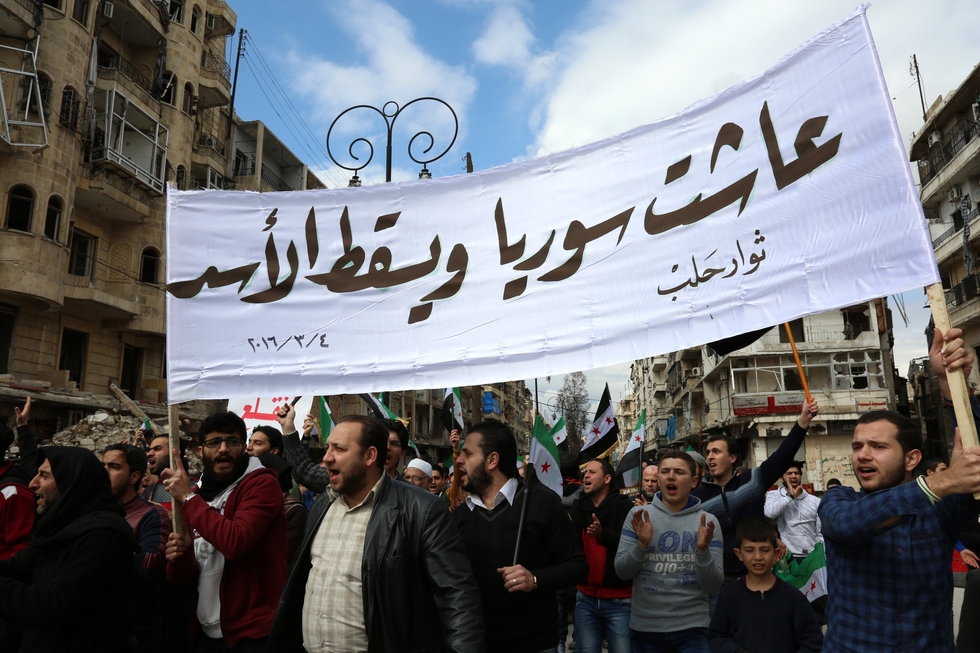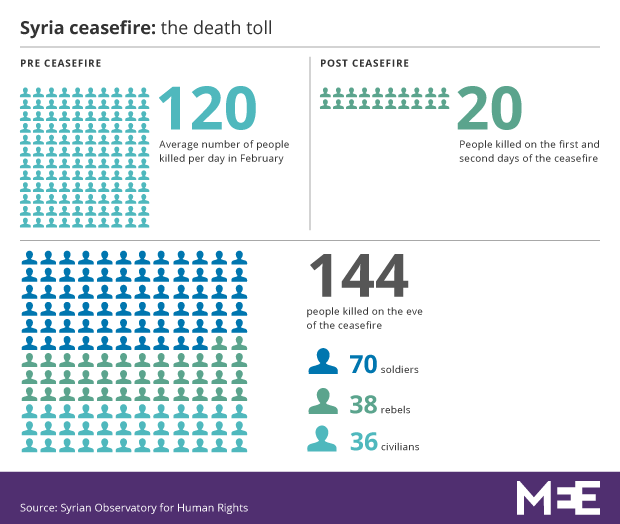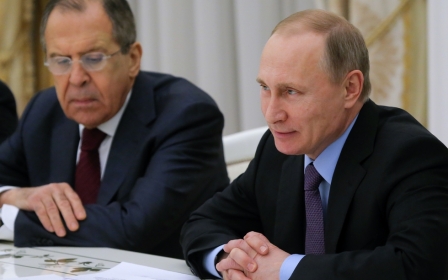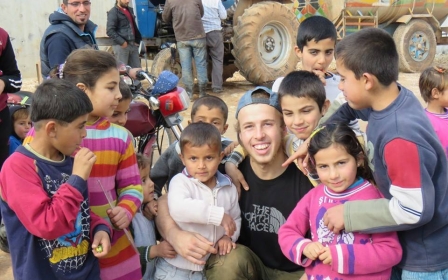Ceasefire violations continue in Syria despite reduction in civilian deaths

Rebel and opposition groups claimed on Friday that government forces are using the week-old ceasefire to prepare for a major offensive, while the UN's Syrian envoy said the impact of the US-Russan backed deal had been "overwhelmingly positive".
An air raid by Russian jets on the rebel stronghold of Douma east of Damascus on Friday killed one person, according to the Syrian Observatory on Human Rights.
Though both the Islamic State group and the Al-Qaeda-affiliated Al-Nusra Front are excluded from the ceasefire, neither group is present in Douma, which is dominated by the mainstream Salafist group Jaish al-Islam, which is a party to the ceasefire.
Jaish al-Islam has been critical of the ceasefire arrangement, despite supporting it, saying that there has been no effective halt in hostilities.
“Our confrontations with the Assad gangs did not stop, whether in the Ghouta, in Homs, or in Aleppo, and as far as we are concerned, the war effectively did not stop on the ground in the shadow of these violation,” they said in a statement released on Friday.
They also claimed that forces loyal to Bashar al-Assad were mobilising for a major attack on “strategic areas” outside Damascus.
Speaking on Friday, UN Syria enovy Steffan De Mistura said that despite violations, the ceasefire had been overwhelmingly positive in Syria.
"Yesterday, there were four people killed. Very sad," he said, speaking to France 24.
"But do you know how many were dying just two weeks ago? Up to 120 per day. An average of between 60 and 80 every day."
But continuing reports of violations have led to scepticism about the ceasefire's durability.
Riad Hijab, the general coordinator for the Syrian opposition’s Higher Negotiations Committee, said on Thursday that there had been over 100 breaches of the ceasefire by the “regime and its allies.”
On Friday he elaborated further saying that over 90 airstrikes had been carried out against 50 regions controlled by the "moderate opposition".
Like Jaish al-Islam, he also suggested that the relative calm was being used by Assad and his allies to prepare for new offensives on rebel strongholds.
“In a time when Mr De Mistura is preparing for a new round of talks in six days, Russia, Iran and their militias are preparing for a new round of violence,” he said.
He added that the current conditions "don't allow" for the resumption of peace talks set for 9 March.
Conversely, Russia has also claimed ceasefire violations.
Russian Foreign Ministry spokesperson Maria Zakharova on Wednesday said there had been 31 violations of the ceasefire without specifying who was responsible.
She urged the US to “adhere to their commitments,” and said that "now is the time to very carefully and responsibly approach the implementation of the Russia-US agreements on the cessation of hostilities in Syria.”
A statement released on Thursday said a further 14 violations had been registered. In neither statement were any specific groups mentioned.
The decision to exclude Nusra from the ceasefire has proven problematic in some quarters as a number of rebel coalitions include the group.
Residents of a number of localities in Syria where Nusra operates called for the group to leave in order to deprive Russia and the government of an opportunity to attack.
In the Aleppo governorate town of Atareb around 250 demonstrators took to the street on Sunday - shortly after the ceasefire came into effect - calling for Nusra to leave their town.
“We the people are not willing to bear the consequences of [Nusra’s] project” said one inhabitant to Syria Direct.
However, numerous opposition activists have stated that Russia and the Syrian government continued attacks on groups unrelated to Nusra and on civilian areas.
Inhabitants of the a-Safyat camp for internally displaced people (IDPs) in the Latakia countryside told the Syria Direct website that shells had on Tuesday continued to fall on the camp on which contains “no military headquarters”.
“This ceasefire is not protecting civilians,” said activist Ali Adra. “Even after it went into effect, fear has not left the people at all.”
“Those who could leave the area have done so, those who couldn’t have stayed to face their fate.”
The opposition group Firqat al-Wasta - a Free Syrian Army group backed by the US - also claimed they were targeted by Russian airstrikes
In a statement the group said their headquarters "were targeted by Russia in the town of Kafr Zita in clear defiance of the ceasefire."
Russia has insisted that the vast majority of opposition groups in Syria are "terrorists" and in practice indistinguishable from Nusra. Despite apparent attacks on other opposition groups since the ceasefire began, the decision to limit the exemptions to only IS and Nusra has been seen a concession on their part.
“Right now, Russia is in a position to set the terms for the ceasefire and that’s what they have done and now when you talk to Russia they say it’s a major concession on their part to have accepted not to list Ahrar al-Sham and Jaish al-Islam alongside Nusra and IS," said Randa Slim, director of the Track II Dialogues initiative at the Middle East Institute.
Protestors back on streets
Since the beginning of the ceasefire, many Syrians have used the opportunity to come out to the streets calling for Assad to step down, in scenes reminiscent of the early days of the 2011 uprisings that began the current conflict.
Video showed residents of Maarit Anuman in opposition-controlled Idlib province holding banners saying that the "revolution will continue till Assad regime falls":
But in spite of such apparent defiance from anti-government protestors, the ceasefire has been seen as a way for Assad to consolidate his power and build for another push into Aleppo, the fall of which would mark a major turning point in the war in Syria.
"The territory they are controlling today is I think what Russia and Assad will be pushing for and using the ceasefire to solidify and consolidate what they have and enter into negotiations from a position of strength and a position of saying that 'Assad has to be part of any future equation of Syria,'" said Slim, speaking to Middle East Eye.
"So Russia has achieved pretty much what they set out to achieve which is to shore up the regime at a time before they entered in September when it was definitely losing and about to really fall and to make sure that Assad will be part of any future equation in Syria."
Middle East Eye propose une couverture et une analyse indépendantes et incomparables du Moyen-Orient, de l’Afrique du Nord et d’autres régions du monde. Pour en savoir plus sur la reprise de ce contenu et les frais qui s’appliquent, veuillez remplir ce formulaire [en anglais]. Pour en savoir plus sur MEE, cliquez ici [en anglais].





